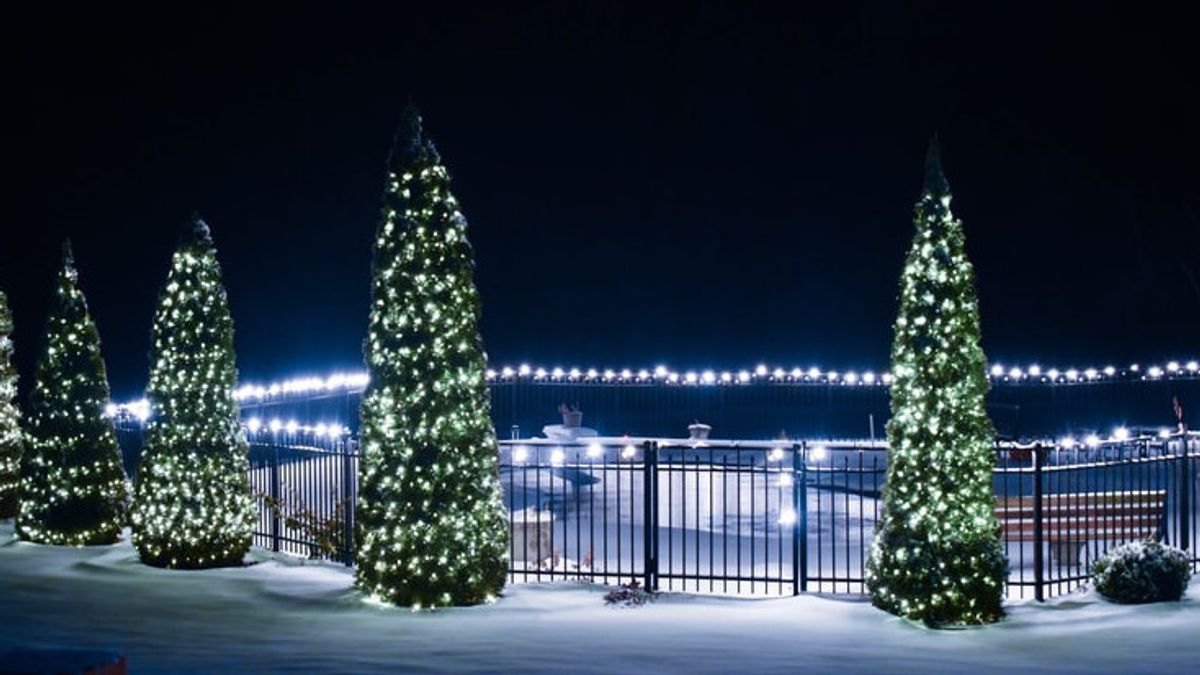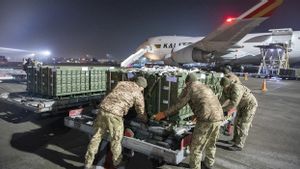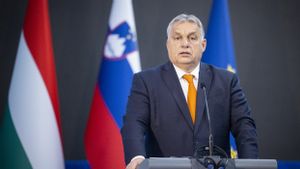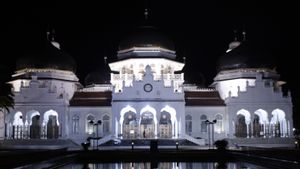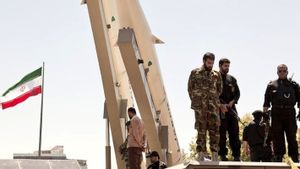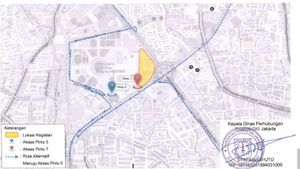JAKARTA - Christmas in Saudi Arabia this year feels different, because it is celebrated in a very extraordinary way. Christmas trees and decorations bustle at the gift shop in Riyadh. The sight of people buying Santa Claus clothes, trinkets and other ornaments at a shop in the capital of Saudi Arabia is a sign of greater tolerance for other religions and beliefs.
In recent years, the social liberalization process in Saudi Arabia began with a decree issued in 2016 by the Cabinet. The decree limits the ability of the Saudi Arabian Committee for the Promotion of Virtue and Prevention of Crime to pursue and arrest offenders.
In February, shops in Riyadh were selling red roses and teddy bears to celebrate Valentine's Day, a development that was also unthinkable two years ago. Now, Christmas decoration sales in Riyadh perfectly feel the new era in Saudi Arabia.
On a state visit to Egypt in March 2018, Saudi Crown Prince Mohammed bin Salman invited Pope Tawadros II, leader of Egypt's Coptic Orthodox Church to Saudi Arabia. During the cathedral tour of St. Mark in Cairo, the crown prince said all Coptic Christians are welcome in Saudi Arabia. A delegation then visited Saudi Arabia shortly thereafter to conduct private sermons for Coptic Christians living in Saudi Arabia.
Also in March 2018, the Crown Prince had a private meeting in London with the Archbishop of Canterbury Justin Welby, where they discussed the reforms currently underway in Saudi Arabia. Bishop Welby said that the Crown Prince made a strong commitment to fostering the development of different religious traditions, and to interfaith dialogue inside and outside Saudi Arabia.
In September 2019, a delegation of evangelical Christian leaders visited Saudi Arabia and held a meeting aimed at promoting interfaith harmony. The group, led by Joel Rosenberg, was received by Crown Prince Mohammed bin Salman. Efforts to promote tolerance and combat extremism and terrorism were emphasized.
The Beauty of Pandemic-Suppressed ToleranceHowever, for Christians around the world, this year's Christmas is unlike any other Christmas. A combination of restrictions related to the COVID-19 pandemic on family gatherings and financial hardship caused by the kuncitara, eased a portion of the December 25 holiday.
For the Christian expatriate community in Saudi Arabia, where various restrictions related to COVID-19 apply, December 25 will probably be more of a time for reflection than joy.
Launching Arab News, Friday, December 25, the situation in the Gulf region is no different from the rest of the world. Festive traditions such as large family gatherings, religious gatherings, parties with friends and colleagues, and this year's mountain-themed Christmas market have had to go online or be canceled. The government has also restricted travel and imposed restrictions on family gatherings.
Saudi Arabia has imposed travel restrictions since March to contain the COVID-19 outbreak. Although Saudi Arabia partially lifted a flight ban on September 15, all international flights were again suspended on December 20 for one week. This was done following reports of a new variant of COVID-19 that appeared in Europe.
"As a Christian based in Saudi Arabia, I celebrate Christmas in solitude away from my family," said Jeruel Trinidad, an American expat who works in Riyadh.
“Usually, I come home at times like this to reunite with my loved ones, but this year, for obvious reasons, I am stuck where I am. I'll survive Christmas by indulging myself in a restaurant that serves my favorite dishes, making lots of video calls with relatives back home, meeting friends who are having the same hardships as me, and most importantly, continuing to work to keep myself busy. So I can forget about nostalgia. After all this is over, I will go home when I can, "he said.
Many Christian families hope the pandemic will be under control in December, and dream of a festive reunion after months of separation and isolation. But the World Health Organization (WHO) warns of "a significant risk of contracting COVID-19 during the upcoming holiday season," with experts advising against unnecessary travel and indoor religious gatherings.
The situation is also unlikely to change significantly on January 7, 2021. Coptic Christians celebrate the birth of Jesus Christ following the Coptic calendar.
Despite their disappointment, many Christian expats in Saudi Arabia are determined to commemorate the event with full responsibility. Berney James, an Indian national based in Riyadh, acknowledged things would not be the same, but he said he would not let the pandemic dampen party spirits.
The English, Chinese, Japanese, Arabic, and French versions are automatically generated by the AI. So there may still be inaccuracies in translating, please always see Indonesian as our main language. (system supported by DigitalSiber.id)
